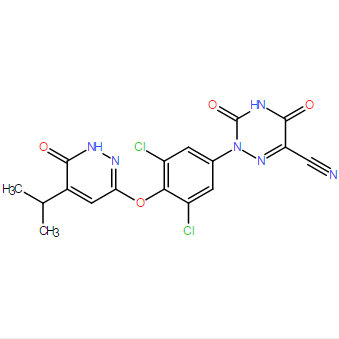| References: |
MGL-3196 is a potent and highly selective thyroid hormone receptor β agonist in clinical trials for the treatment of dyslipidemia. The beneficial effects of thyroid hormone (TH) on lipid levels are primarily due to its action at the thyroid hormone receptor β (THR-β) in the liver, while adverse effects, including cardiac effects, are mediated by thyroid hormone receptor α (THR-α). MGL-3196 shows outstanding safety in a rat heart model and is efficacious in a preclinical model at doses that showed no impact on the central thyroid axis.MGL-3196 demonstrated statistically significant results on the primary endpoint, the percent change in hepatic fat versus placebo as measured by magnetic resonance imaging-estimated proton density fat fraction (MRI-PDFF), a non-invasive imaging test. Recently published data have shown a high correlation of the reduction of liver fat of 30% or more as measured by MRI-PDFF to improvement in NASH on liver biopsy. Statistically significant reductions in ALT and AST were observed in MGL-3196 treated patients. Greater reductions in ALT and AST, statistically significant relative to placebo, were observed in the prespecified group of 44/78 patients with relatively higher MGL-3196 drug levels. In drug-treated patients relative to placebo patients, statistically significant improvements were also seen in multiple secondary endpoints considered to be potentially clinically relevant in patients with NASH, including LDL-C, triglycerides, apolipoprotein B (ApoB), and Lp(a). MGL-3196 was well tolerated with mostly mild adverse events, and a few moderate adverse events, the numbers of which are balanced between placebo and drug-treatment groups. There are no adverse effects of MGL-3196 on safety laboratory or vital sign parameters. There have been three serious adverse effects in the study, all considered unrelated to MGL-3196. |























